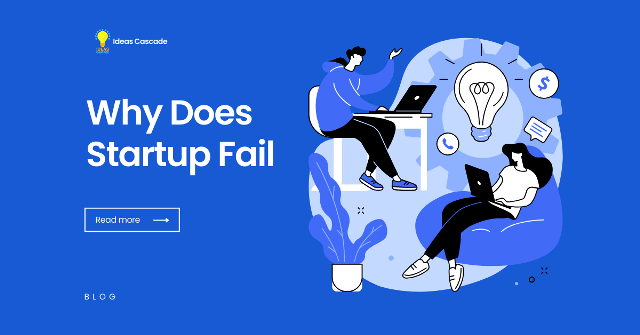Each year almost 305 million startups are established. 10% of the start ups fail in first year after their inception. On average 90% of the startups fail after their take-off. In this blog post, we will discuss the reasons of failure of start ups.
Let’s take a look on reasons of failure.
No Market for your Product of Start up
Make sure you make the right product for the right market. Most startups fail as there is little or no market for their product. Another cause, start ups re-introduce a mature product to an already existing market. For example feature phone is launched whereas this product is already in decline phase.
Your product needs a compelling value. For example, you establish a diagnostic center or testing laboratory with offer of home collection of samples. This idea might work for elderly people because for them travelling is not easy.
Know the pulse of your target market before you decide to jump in. In simple words, target un-occupied market segment. This will help you to create awareness for your brand / product. You may also consider to launch an updated version of a product but you should consider your cost. Because your competitor might have economies of scale and you may have to face a strong competition.
Cash Crunch with Start up
Companies fail when they run out of cash before they achieve their set objectives. One of the most important responsibilities of a CEO is to understand cash flows and how to get more of it for the company. If your company is dependent on investors for funding, you must ensure that the investors are interested enough till you start getting sufficient revenues from your customers.
Inefficient Team or Management of start up
With inefficient top management, chances of the failure of your start up may increase. Management may have lack of co-ordination. So it may effect down to staff. It may cause break-up of teams. Start ups may have unnecessary chain of command in their management. Hence, startups become less adaptive and less responsive to changes in environment. As startups operate in dynamic business environment.
Unviable Business Model
The cost of acquiring a customer (CAC) must be less than the lifetime value of that customer (LTV). The right business model will take care of finding a scalable way to acquire customers, especially for a capital efficient business, which will look to recover the CAC in under a year’s time. Startups with unviable business models have an unbelievably high CAC and a low-to-average LTV that will not be sufficient to cover the CAC. Such companies, in all probability, will fail in a few months or years.
Poorly Designed Product
No one or nothing can save a poor product from failing. If the main focus is not on the product, you will never gain customers. Prototyping helps in fine-tuning your product. Make your product as customer-friendly as possible. Customer centricity is what keeps great companies going year after year. Your product will succeed only if and when it truly solves a customer problem. You should also analyse your product by sizing your target market.
Ineffective Marketing
People do not give enough credit to poor marketing for a start up’s failure when it is actually a major reason. A great product does not and cannot always advertise itself. If you market to the wrong audience or use the wrong channels, your product and consequently, your company shall be doomed soon.
Legal Challenges
There are many legal challenges that arise in a company’s journey, right from branding issues to when a company starts expanding into new markets. Some of these legal challenges can be so serious that they can put an immature end to the company.
Loss of Passion or Focus
If you think a startup is your ticket to quick money and you do not truly believe in your idea, then you will soon lose traction. Your lack of passion or focus will start showing. All your actions will be motivated by money, not by the desire to solve the customer’s problem and that is the quickest way to fail majestically as a company.
Overconfidence or Arrogance
Overconfidence or arrogance makes you so sure of yourself and your product that you do not even bother to test your ideas in the market. You end up spending tons on your idea that ultimately ends up bombing. This reason is the base on which most of the reasons in this list exist. Entrepreneurs often suffer from overconfidence and while this helps in certain cases, it ruins everything in most others.
Strong Competition
Your competitors might be huge and can kill you with the might of money and scale. If you are a grocer in the US and want to expand, chances are giants like Walmart will eat you up for lunch. In today’s world, scale and funding are very important and the situation might be different in different countries, case in point being when even big companies like Uber could not compete with Didi in China.
Closing lines
In summary startups fail because of wrong market selection, product-market mismatch, cash crunch, inefficient team, unviable business model, poorly designed products, ineffective marketing, legal challenges, loss of focus, strong competition, overconfidence, arrogance a lack of research, bad partnerships and not being an expert in the industry.
Start ups also fail due to a variety of reasons outside of this list but this should not deter you from starting up. No one said this would be easy. But if you do not want to perish like 90% of start ups, you better avoid these common pitfalls. You will need lots of perseverance to succeed as a start up. You need to constantly plan, execute, track the results and learn from your mistakes. Plan well, don’t be short-sighted, keep your ego aside and be flexible to ever-changing market dynamics.



